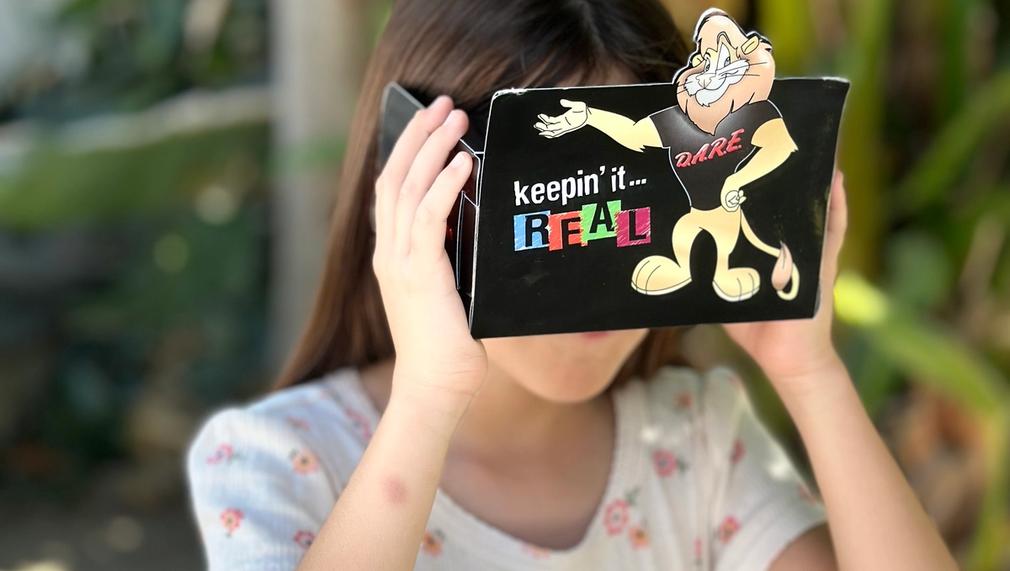Empowering LA with AI-VR Education
Revamping K-12 Education in LA: AI Smart Kids offers an AI-VR global learning solution, using any smartphone for immersive experiences. Our affordable VR glasses and AI mobile platform delivers engaging education, enhancing accessibility and setting new standards for tech integration in schools and homes.

What is the primary issue area that your application will impact?
K-12 STEAM education
In what stage of innovation is this project, program, or initiative?
Pilot or new project, program, or initiative (testing or implementing a new idea)
What is your understanding of the issue that you are seeking to address?
In Los Angeles, quality STEM education and enriching field experiences are often inaccessible for students in underserved communities due to the high cost of traditional field trips to museums and historical sites. AI Smart Kids aims to bridge this gap with our VR Voyager platform, offering immersive VR Learning Tours at a fraction of the cost of physical trips. While we have developed the necessary hardware and AI mobile platform, expanding our media library we will reach out to establishing partnerships with HOLA (Heart of Los Angeles) to support underprivileged children in afterschool programs, arts, athletics, and wellness initiatives requiring additional funding. This grant will enable us to produce diverse educational VR content and form crucial partnerships, ensuring every LA student can access transformative learning experiences directly from their classrooms and their homes, promoting educational equity and preparing a diverse workforce for a technology-driven future.
Describe the project, program, or initiative this grant will support to address the issue.
AI Smart Kids will utilize this grant to enhance our VR Voyager platform, designed to make STEM education more accessible and engaging for LA's underserved students. Our project involves three key activities: content development, partnership formation, and school integration.
First, we will expand our VR content library to include diverse and immersive VR Learning Tours to museums, national parks, and historical sites. This allows students to explore the world without the prohibitive costs associated with traditional field trips.
Secondly, we will use the funds to establish partnerships with local nonprofit, schools and educational organizations. This involves outreach to school districts, presentations to educators, and demonstrations of the AI/VR technology’s potential in classrooms.
Lastly, integration into schools will be supported by training AI mobile platform on how to effectively use the VR Voyager platform and integrating our VR experiences into their existing curriculum. By providing a cost-effective alternative to field trips and enhancing STEM education with cutting-edge technology, our project addresses educational disparities and fosters a more inclusive learning environment.
Describe how Los Angeles County will be different if your work is successful.
If our project succeeds, Los Angeles County will become a model for equitable and innovative education, where every student, regardless of background, has access to cutting-edge STEM learning tools. In the short term, we aim to integrate VR Voyager into 50 schools, reaching over 15,000 students by the end of 2024 and early 2025, significantly enhancing their learning experiences and interest in STEM fields.
Long-term, we plan to scale our project to include every school district in the county, continuously updating and expanding our VR content library to cover a broader range of subjects and real-world applications. This expansion will foster a generation of students who are not only tech-savvy but also well-prepared for the demands of the future job market. By democratizing access to high-quality educational resources, our project will reduce educational disparities and contribute to a more informed, innovative, and inclusive community.
What evidence do you have that this project, program, or initiative is or will be successful, and how will you define and measure success?
Our initiative’s success will be measured through qualitative feedback and quantitative metrics. We will monitor the adoption of the VR Voyager platform and VR session frequency, gathering feedback from students and teachers on engagement and outcomes.
Surveys will assess changes in STEM interest and proficiency, and document the widening access to STEM education for underserved communities. Success will also be documented through case studies.
A feedback loop with educators will help refine our AI/VR content, ensuring it meets evolving educational needs and scales effectively across Los Angeles County
Approximately how many people will be impacted by this project, program, or initiative?
Direct Impact: 1,000.0
Indirect Impact: 25,000.0